A B C D E F G H I J K L M N O P Q R S T U V W X Y Z
Dara Aisner, MD, PhD, is a board-certified certified Anatomic and Molecular Genetic Pathologist. She is an Associate Professor of Pathology at the University of Colorado School of Medicine in Denver, Colorado and a member of the University of Colorado Comprehensive Cancer Center. She also recently became board certified in Clinical Informatics. She is the Director of the Colorado Molecular Correlates Laboratory within the Department of Pathology. The laboratory provides level clinical molecular pathology laboratory services. She is a member of numerous oncology pathology and guidelines committees including the CAP/AMP/IASLC Guidelines for Biomarker Testing in Non-Small Cell Lung Cancer and the NCCN non-small cell lung cancer panel, and the College of American Pathologists Genomic Medicine Resource Committee, among others. She is a member of the Association for Molecular Pathology, for which she serves as a member of the Economic Affairs Committee. She is also a member of the United States and Canadian Academy of Pathology, among other professional societies. Dr. Aisner is the author of numerous publications and book chapters.
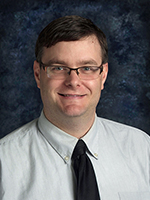
Kevin Alby, PhD, received his PhD from Brown University, completed an ASM CPEP fellowship at the University of North Carolina and is a Diplomate of the American Board of Medical Microbiology. He is currently the Director of Clinical Microbiology at the Hospital of the University of Pennsylvania where he focuses on the development and utilization of new technologies in the microbiology laboratory.
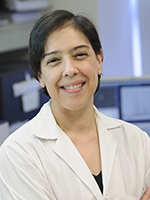
Maria Arcila, MD, is an anatomic and clinical pathologist with subspecialty training in Molecular genetic pathology and Hematopathology. She is the Laboratory Director for Diagnostic Molecular Pathology at Memorial Sloan Kettering where she is directly involved with the development, expansion, validation, and implementation of new and novel clinical tests to detect genetic alterations that are relevant to the management and treatment of patients with both solid tumors and hematologic malignancies. She has a specific interest in the development of high sensitivity assays for accurate and robust assessment of samples with very low tumor content and monitoring of minimal residual disease. To this end, she has been expanding the use of digital PCR in the clinical laboratory, as a way to overcome known limitations of other assays in the detection of key genetic alterations for treatment selection. In her presentation she will discuss the benefits of using digital PCR as a complementary method to NGS in the assessment of liquid biopsies.
Panagiotis Benos, PhD, received his undergraduate degree in Mathematics and a PhD degree in Molecular Biology from the University of Crete. Post-graduate studies include work with Prof. Michael Ashburner at EMBL-EBI in the analysis and annotation of the Drosophila genome and Prof. Gary Stormo at Washington University in St. Louis in the development of probabilistic models for protein-DNA interactions. In 2002 he joined University of Pittsburgh where he is currently Professor and Vice Chair at the Department of Computational Biology with joint appointments at the University of Pittsburgh Cancer Institute (UPCI), the Department of Computer Science and the Department of Biomedical Informatics. His research interests are in the field of computational biology and systems medicine. In particular he studies the causes of disease phenotypes and outcomes by integrating clinical information and -omics data through machine learning methods. His work has been published in various peer-reviewed journals including Nature, Science, Genome Biology, Genome Research, etc.
Jonathan S. Berg, MD, PhD, is an associate professor in the Department of Genetics at the University of North Carolina at Chapel Hill (UNC). He also has a clinical appointment in the Department of Medicine, Division of Hematology–Oncology and the Lineberger Comprehensive Cancer Center. Dr. Berg graduated from Emory University with a B.S. in biology and completed the M.D./Ph.D. program at UNC in the Curriculum in Neuroscience. He subsequently underwent residency training in Clinical Genetics at Baylor College of Medicine. The recent revolution in genetic sequencing technology has led to an unprecedented opportunity to investigate the underlying etiology in families with genetic conditions, and yet it raises potential pitfalls that must be addressed in order to translate these new technologies into the practice of clinical genomics. Dr. Berg is particularly interested in the “incidental,” or “secondary,” findings that are discovered during the course of genome-scale sequencing, including the pre-test counseling and informed consent process; computational analysis required to determine the likely clinical relevance of variants; best practices for return of these findings to patients; and the impact of genomic findings on patients and their families. He is co-principal investigator of National Institutes of Health (NIH) grants to investigate the use of genome-scale sequencing as a diagnostic test in patients with suspected genetic disorders, as a potential screening tool in healthy newborns, and to develop a publicly available database of clinically relevant genes and variants through the “ClinGen” project. Dr. Berg has led the development of a novel semi-quantitative metric that evaluates several key aspects of “actionability” to score gene–phenotype pairs in a transparent, unbiased fashion. This approach is being studied as a way to guide the return of genomic findings in projects at UNC.

Eric H. Bernicker, MD, is a thoracic medical oncologist who practices at Houston Methodist Hospital. He received his MD from Baylor College of Medicine. He did his internal medicine training at the Baylor Affiliated Hospitals training program and then his oncology fellowship at MD Anderson Hospital. He is the director of the thoracic medical oncology program at HMH where he is the Pl on a number of investigator initiated and cooperative group trials. He served on the expert panel that worked on the updated AMP/CAP/IASLC guidelines for biomarker testing in advanced lung cancer . He also started and continues to moderate the molecular oncology tumor board at HMH. As chair of the HMH cancer committee he has worked closely with anatomic and molecular pathologists to develop reflex molecular testing for lung and colorectal cancers at HMH.

Timothy A. Blauwkamp, PhD, is Chief Scientific Officer and co-founder of Karius. Prior to Karius, he led research and lab operations for the long-reads DNA sequencing startup Moleculo, until their acquisition by Illumina. Dr. Blauwkamp received his PhD in Biochemistry from the University of Michigan for studies of gene transcription networks in bacteria, followed by postdoctoral research at UofM and Stanford University focused on signaling mechanisms that influence early development and stem cell biology. His penchant for developing technologies that provide unprecedented insight into biology has led to 8 issued patents and more than 20 publications across the fields of genomics, developmental biology, and bacterial physiology.
Danielle Bonadies, MS, CGC, is the Director of the Genetics Division at My Gene Counsel, a digital health company that links current, updating, evidence-based information to genetic test results. Danielle practiced as a clinical genetic counselor at Yale School of Medicine for a decade, where she was the Assistant Director of the Cancer Genetic Counseling Program. She designed and ran several interactive, on-line patient education and communication sites, and was involved in the cancer genetics education of thousands of patients, clinicians and students. Danielle has co-authored multiple book chapters and articles in genetic counseling and testing and was involved in the collection, documentation and publication of several key articles about the high rate of result misinterpretation amongst clinicians ordering genetic testing. At My Gene Counsel, Danielle oversees the development of digital genetic counseling tools and takes an active role in technology development.
Alexis Carter, MD, is the Physician Informaticist for the Laboratory at Children’s Healthcare of Atlanta. She is board certified in clinical informatics, molecular genetic pathology, anatomic pathology and clinical pathology. Dr. Carter is the current chair of the Informatics Subdivision, Board Member and Executive Committee Member of the Association of Molecular Pathology. She is teaching faculty for the Clinical Informatics Board Review Course presented by the American Medical Informatics Association. In the College of American Pathologists, Dr. Carter is a member of the Informatics Committee and was a member of the working group that developed the validation guideline for Whole Slide Imaging. She currently works as the Secretary for the Clinical and Laboratory Standards Institute’s working group for a new standard on two-dimensional barcoding for both clinical and anatomic pathology laboratory specimens. Dr. Carter is a member of the Office of the National Coordinator’s TIGER team for Laboratory Regulations and Laboratory Reporting under Meaningful Use. She is a former chair of the International Pathology and Laboratory Medicine Special Interest Group for SNOMED-CT International. She is a former president of the Association of Pathology Informatics, an editorial board member of the Journal of Pathology Informatics and reviewer for multiple scientific journals in molecular diagnostics, genetics and informatics including the Journal of Molecular Diagnostics.
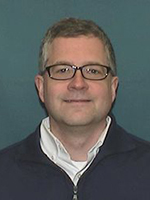
Ethan Cerami, PhD, is the Director of the Knowledge Systems Group at the cBioCenter and Lead Scientist in the Department of Biostatistics and Computational Biology at Dana-Farber Cancer Institute. Prior to joining Dana-Farber, he was the Director of Computational Biology at Blueprint Medicines, and Director of Cancer Informatics Development at Memorial Sloan Kettering Cancer Center (MSKCC). While at MSKCC, he co-founded the cBioPortal for Cancer Genomics, and his group remains active in its continued development. He is currently the Co-PI of the National Cancer Institute Cancer Immunologic Data Commons (CIDC), and the Co-PI of the DFCI MatchMiner platform for algorithmically matching patients to precision cancer medicine trials. Dr. Cerami has a MS in Computer Science from New York University and a PhD in Computational Biology from Cornell University.
Laurence J. Clark, MD, having been a practicing Internist in Alexandria, VA from 1980 to the present, and involved in the Medicare Carrier Advisory process since its inception, Dr. Clark is one of the JK Medical Directors. Dr. Clark has been licensed as a physician in Virginia since 1980, has served as President of the Medical Staff of the Mount Vernon Hospital in Alexandria, and has been a member of the extended faculty of Georgetown University, his medical alma mater, for seventeen years. After 33 years as a private practitioner, he now devotes his clinical time to the clinic of the Carpenter’s Shelter, a homeless shelter in the City of Alexandria. He continues to educate first and second year medical students in patient evaluation and Ambulatory Care. Initially representing the American College of Physician’s local chapter on the first DC Metropolitan Area Carrier Advisory Committee, he remained continuously active until 1998, when he was asked by TrailBlazer Medicare to serve as a consultant. Stepping down from the co-chairman’s role, he supported the committee, first as a consultant, and then as Associate Medical Director for TrailBlazer Medicare. After several years in that capacity, he became Medical Director for TrailBlazer’s Mid-Atlantic region, and continued until 2007, when TrailBlazer vacated the contract. He continued in the same region as Medical Director with Highmark Medicare Services until late 2011. He began his tenure with National Government Services as Medical Director with both J13 and Title XVIII responsibilities on January 6, 2012, and subsequently became Medical Director for JK, New York and New England upon the award of that contract to NGS. Dr. Clark enjoys working with facilities and practitioners throughout Jurisdiction K, refining existing policies, and developing new ones where needed. He also shares a leadership role on several committees, working on collaborative policy initiatives with other Medicare contractors.
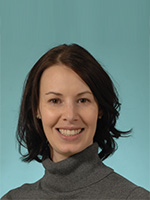
Catherine Cottrell, PhD, is a Director of the Institute for Genomic Medicine Clinical Laboratory at Nationwide Children's Hospital in Columbus, Ohio. She is an Associate Professor - Clinical in the Departments of Pathology and Pediatrics at The Ohio State University. Dr. Cottrell is dual certified by the American Board of Medical Genetics and Genomics in the specialties of Cytogenetics and Molecular Genetics having completed her fellowship training at The Ohio State University and Nationwide Children’s Hospital in Columbus, Ohio. Following the conclusion of her fellowship, Dr. Cottrell assumed a faculty position in 2011 at Washington University (WU) School of Medicine in Saint Louis, Missouri. In the six years she spent at WU, she most recently served as the Director of the Cytogenetics and Molecular Pathology Laboratory, and as an Associate Professor in the Department of Pathology and Immunology, and Department of Genetics. Dr. Cottrell specializes in the clinical interpretation of complex laboratory tests including constitutional and oncology chromosome analysis, FISH analysis, next-generation sequencing, Sanger sequencing, as well as chromosomal microarray analysis. She has an interest in the development of new clinical diagnostic tests, and a focus somatic variant interpretation and mosaicism in the setting of congenital disease. Her current clinical and research emphasis includes constitutional whole exome sequencing, tumor somatic profiling, and best practices in genetic variant interpretation.

Bryan R. Cullen, PhD, obtained a B.Sc. in Biochemistry from Warwick University in the UK and a M.Sc. in Virology from the University of Birmingham before moving to the USA, where he obtained a Ph.D. in Microbiology from Rutgers University. In 1987, he was recruited to Duke University Medical Center as a Howard Hughes Medical Institute Investigator. He currently holds a James B. Duke Professorship in the Department of Molecular Genetics and Microbiology at Duke. Dr. Cullen’s research interests have historically revolved around the use of viruses as genetic tools to understand aspects of the biology of the eukaryotic cell, focusing particularly on RNA-sequence mediated gene regulation. Currently, his laboratory is studying the regulation of viral mRNA expression by epitranscriptomic modifications and the use of CRISPR/Cas as a potential approach to the treatment of chronic diseases caused by DNA viruses. Dr. Cullen has published over 315 research papers, is on the editorial board of 11 prominent journals and has been recognized as one of the most highly cited scientists in the field of microbiology.
Jennifer Dien Bard, PhD, is the director of the clinical microbiology and virology laboratories at Children’s Hospital Los Angeles (CHLA) and Associate Professor of Pathology at the University of Southern California Keck School of Medicine. Dr. Dien Bard is a Diplomate of the American Board of Medical Microbiology and a Fellow of the Canadian College of Microbiologists. Her current research interests include the development and utilization of rapid laboratory diagnostics and their subsequent impact on patient management.
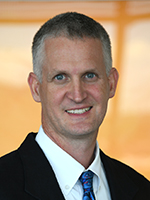
Samuel R. Dominguez, MD, PhD, is an Associate Professor of Pediatrics at the University of Colorado School of Medicine in the Division of Infectious Diseases. He is also an Associate Professor of Epidemiology in the School of Public Health. He serves as the Medical Director for the Clinical Microbiology Laboratory and the Associate Medical Director for Infection Control and Prevention at Children's Hospital Colorado. He obtained his undergraduate degree in chemistry and mathematics at Houghton college in 1992. He then completed the MD/PhD program at the University of Chicago. Dr. Dominguez completed his pediatric residency at the University of Chicago and his Pediatric Infectious Disease Fellowship at the University of Colorado, joining the faculty there in 2007. He has a research interest in clinical diagnostics and diagnostic stewardship, emerging infectious diseases, pediatric respiratory viral infections and enteroviruses, and Kawasaki disease. He is the author over 70 peer-reviewed publications.
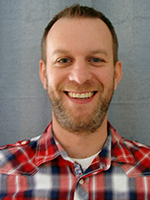
Breck Duerkop, PhD, earned his doctoral degree in Microbiology from the University of Washington, where he studied quorum sensing and secondary metabolite synthesis the bacterial species Burkholderia under the guidance of Dr. E. Peter Greenberg. He completed postdoctoral research training at the University of Texas Southwestern Medical Center in the laboratory of Dr. Lora Hooper. During his postdoctoral studies, Dr. Duerkop used a combination of bacterial genetics and gnotobiotics to determine how intestinal colonization influenced the biology of Enterococcus faecalis, a Gram-positive commensal and nosocomial pathogen. His work was among the first to reveal that bacteriophages (viruses that infect bacteria) impact the dynamics of bacterial colonization in the mammalian intestine. Currently, Dr. Duerkop is an Assistant Professor of Immunology and Microbiology at the University of Colorado School of Medicine, where his lab studies bacteriophage-host interactions. His lab focuses on bacteriophage infection mechanisms of multidrug resistant bacteria and how the immune system influences intestinal bacteriophage communities. His lab has recently been exploring the molecular mechanisms of how Enterococci develop resistance to bacteriophages and whether bacteriophages can be used as next generation antibacterial therapeutics. His lab is also using metagenomics to study the influence of phage communities on intestinal inflammatory disorders such as Crohn’s disease and ulcerative colitis with the long-term goal of understanding how phages contribute to host-microbe interactions and their overall impact on human health.
Oliver Elemento, PhD, is the director of the Englander Institute for Precision Medicine, an Institute that focuses on using genomics and informatics to make medicine more individualized. His research group combines Big Data with experimentation and genomic profiling to accelerate the discovery of cancer cures. In cancers, we are elucidating the patterns of aberrant pathway activities, rewiring of regulatory networks and cancer mutations that have occurred in cancer cells. We are also trying to understand how tumors evolve at the genomic and epigenomic level. We use high-throughput sequencing (ChIP-seq, RNA-seq, bisulfite conversion followed by sequencing – specifically RRBS-, ATAC-seq, exome capture and sequencing, single cell RNAseq using DropSeq) to decipher epigenetic mechanisms and regulatory networks at play in malignant cells and study how they affect gene expression. Our research has led to the development of the first New York State approved whole exome sequencing test for oncology, which is now used routinely on patients treated at Weill Cornell Medicine/NewYork Presbyterian Hospital. He has had the privilege to mentor over 15 wonderful Weill Cornell graduate students and postdoctoral fellows. He has also enjoyed many productive collaborations with his Weill Cornell colleagues over the years and is looking forward to many more.

Stephanie I. Fraley, PhD, joined UC San Diego in July 2014 as an Assistant Professor of Bioengineering. Her research takes a multidisciplinary and multi-scale approach to (1) develop inexpensive clinical profiling technologies for improved monitoring, understanding, and treatment of human diseases; and (2) engineer physiologically relevant in vitro systems to improve the translation of molecular studies of human disease. She earned her B.S. in Chemical Engineering in 2006 from The University of Tennessee Chattanooga and her Ph.D. in Chemical and Biomolecular Engineering in 2011 from The Johns Hopkins University. Dr. Fraley then joined the Emergency Medicine department at The Johns Hopkins University as a postdoctoral fellow. For her graduate work, she was awarded an NSF Graduate Research Fellowship, National Tau Beta Pi Fellowship, and was an Achievement Rewards for College Scientists Scholar, Johns Hopkins Heath Fellowship, National Siebel Scholarship, and ASEE/NSF Engineering Innovations Fellowship. Recently, she received a National Burroughs Wellcome Fund Career Award at the Scientific Interface for her research merging clinical diagnostic and basic research approaches. She is also a SAGE Bionetworks Scholar, Kavli Frontiers of Science Fellow, Biomedical Engineering Society Cellular and Molecular Bioengineering Rising Star awardee, and recipient of an NSF CAREER award.
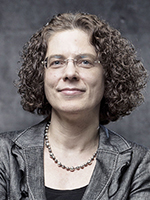
Birgit Funke, PhD, FACMG, received her Ph.D. in molecular genetics from the University of Würzburg, Germany and trained as a postdoctoral fellow at the Albert Einstein College of Medicine in New York where she identified the gene for 22q11 deletion syndrome. She subsequently completed a fellowship in Clinical Molecular Genetics at Harvard Medical School and has dedicated her career to personalized genetic medicine since then. She served as the director of Clinical Research and Development at the Laboratory for Molecular Medicine (LMM) and was among the first worldwide to implement clinical next generation sequencing (NGS). She also has a extensive experience in clinical diagnostic testing for inherited cardiovascular disorders and is co-chairing the cardiovascular domain working group of the Clinical Genome Resource (ClinGen) whose mission is to harmonize and centralize knowledge resources for genomic medicine. Today, Dr. Funke is Vice President of Clinical Affairs at Veritas Genetics and part time Associate Professor of Pathology at Harvard Medical School. Her long term goal is to use genomic testing for disease prevention.
Elaine Gee, PhD, is the founder and principal consultant of BigHead Analytics Group with industry expertise in clinical bioinformatics and scalable compute platforms for clinical genomic testing. Previously Dr. Gee was the Director of Bioinformatics at ARUP Laboratories, where she supported the bioinformatics and compute infrastructure for next-generation sequencing-based assays. At ARUP she led her team to scale bioinformatics by creating an elastic cloud-based compute infrastructure in AWS that executed standardized bioinformatics pipelines (a.k.a. “Pipey”, see https://www.genomeweb.com/clinical-lab-management/arup-launches-cloud-based-ngs-analytics-platform-massively-larger-scale). This work included tuning somatic and germline pipelines by variant class, developing a central genomic variant datastore to house discrete data, and modularizing the infrastructure. Additionally her work included incorporation of unique molecular identifiers to enable low frequency variant detection and creation of tools to optimize NGS target design in low complexity genomic regions. Dr. Gee focuses on pairing analytic and infrastructure quality improvements with design architecture to scale the bioinformatics product development life cycle by leveraging modularity and automation. Her background includes cross-disciplinary experience in signal processing, molecular dynamics modeling, and instrument integration and control. Dr. Gee earned her Ph.D. in biophysics from Harvard University and a B.S. in physics from the California Institute of Technology. She currently serves as the informatics subdivision lead on the AMP Global 2019 Organizing Committee.
Paul Gerrard, MD,
Christopher D. Gocke, is an Associate Professor of Pathology and Oncology at the Johns Hopkins University School of Medicine. He is Director of the Division of Molecular Pathology, Deputy Director (Vice Chairman) of Personalized Medicine for the Department of Pathology, and co-director of Johns Hopkins Genomics. He received his B.A. in Chemistry from Princeton University and his M.D. in 1985 from Rutgers Medical School. His residency training in pathology was at the University of Rochester and Stanford University, where he was Chief Resident. He completed a fellowship in pathology at Stanford. Dr. Gocke has co-authored over 125 peer-reviewed publications in the area of cancer diagnostics. He is a past Councilor on the Program Directors’ Council of the Association of Molecular Pathology and a member of the NCI’s Investigational Drug Steering Committee. He is co-principle investigator on two NIH research project cooperative agreements. He is board certified in Molecular Genetic Pathology and Anatomic Pathology.
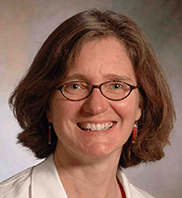
Lucy Godley, MD, PhD, developed her deep respect for science through her work in the laboratories of Drs. Sally and Vincent Marchesi at Yale University, with Dr. Don Wiley as a Harvard undergraduate, and during the graduate portion of her MSTP program, conducted under Dr. Harold Varmus at the University of California, San Francisco and the National Institutes of Health. She completed her medical training at Northwestern University followed by Internal Medicine/Hematology-Oncology training at The University of Chicago. During her postdoctoral research with Dr. Michelle Le Beau, Dr. Godley developed her interest in the molecular basis for the abnormal DNA methylation patterns that characterize human tumors. Since becoming a faculty member at The University of Chicago in 2003, the Godley Laboratory has concentrated on understanding the molecular drivers of the abnormal DNA methylation and 5-hydroxymethylcytosine patterns that characterize cancer cells as well as the molecular drivers of inherited hematopoietic malignancies. As a physician-scientist with both research and clinical responsibilities, Dr. Godley seeks to understand disease on a molecular basis and am able to bring that perspective to the care of my patients.

Alex Greninger, MD, PhD, is an assistant professor of laboratory medicine and associate director of the clinical virology laboratory at the University of Washington. He received a BS and MS in Biological Sciences and a BA in International Relations from Stanford University, a MPhil in Epidemiology at Cambridge University, and a MD/PhD from the University of California San Francisco. He is also interested using metagenomics and genomics of infectious diseases to inform diagnostics and evaluate antivirals, monoclonals, and vaccines to punch viruses in their stupid enveloped and capsid faces.
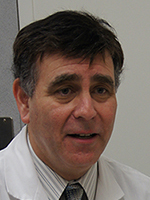
Wayne W. Grody, MD, PhD, is a Professor in the Departments of Pathology & Laboratory Medicine, Pediatrics, and Human Genetics at the UCLA School of Medicine. He is the director of the Molecular Diagnostic Molecular Laboratories and the Clinical Genomics Center within the UCLA Medical Center. He is also an attending physician in the Department of Pediatrics, specializing in the care of patients with or at risk for genetic disorders. He has been one of the primary developers of quality assurance and ethical guidelines for DNA-based genetic testing for a number of governmental and professional agencies including the FDA, VA, AMA, CAP, ACMG, ASHG, NCCLS, CDC, NIH-DOE Human Genome Project (ELSI program), and PSRGN. He served as a member of the NIH-DOE Task Force on Genetic Testing, and was the working group chair for development of national guidelines for cystic fibrosis and factor V-Leiden mutation screening. More recently, he served as founding chair of an Advisory Committee on Genomic Medicine for the entire VA healthcare system and as president of the American College of Medical Genetics. He did his undergraduate work at Johns Hopkins University, received his M.D. and Ph.D. at Baylor College of Medicine, and completed residency and fellowship training at UCLA. He is double board-certified by the American Board of Pathology (Anatomic and Clinical Pathology, Molecular Genetic Pathology) and the American Board of Medical Genetics (Clinical Genetics, Molecular Genetics, and Biochemical Genetics).
Jill Hagenkord, MD, is a board-certified pathologist with subspecialty boards in molecular genetic pathology. As Chief Medical Officer, Jill is involved in health product strategy, identification and evaluation of strategic business partnerships, regulatory strategy, health information review, and the development of provider and patient support tools. She also serves as the company liaison to medical professional societies as an active member in the Association for Molecular Pathology, the College of American Pathologists, American College of Medical Genetics and Genomics, and the National Academies of Science, Engineering, and Medicine’s Roundtable on Genomics and Precision Health. Jill received her M.D. from Stanford University School of Medicine in 1999, did residency training at the University of California at San Francisco and the University of Iowa, and completed fellowships at the University of Pittsburgh Medical Center. Subsequently, Dr. Hagenkord practiced pathology at Creighton University Medical Center where she founded iKaryo Diagnostics. Prior to joining Color, Jill was the Chief Medical Officer at 23andMe, Invitae, and Complete Genomics.
Ingrid A. Holm, MD, MPH, is a faculty member of the Division of Genetics and Genomics at Boston Children’s Hospital (BCH) and Associate Professor of Pediatrics at Harvard Medical School. Dr. Holm’s primary area of research is in the Ethical, Legal, and Social Implications (ELSI) of returning genomic information to children and parents. She is co-investigator in the “Genomic Sequencing and Newborn Screening Disorders” U19 (BabySeq project), a randomized trial of whole exome sequencing vs. standard of care in healthy and sick newborns. The BabySeq Project explores the medical, behavioral, and economic impacts of integrating genomic sequencing into the care of newborns. Dr. Holm co-leads the ELSI component to study the impact of the return of genomic results to parents and their health care providers. Dr. Holm is also co-investigator of the Electronic Medical Records and Genomics (eMERGE) III Network where she co-leads the Return of Results-ELSI Work Group, and she has an R01 to study the impact of return of actionable genetic information on eMERGE participants to their health care providers. Dr. Holm is co-PI of a study of exome sequencing in children with disorders of sex development and leads assessments of the impact of the return of results on families. She is a co-investigator of the Undiagnosed Diseases Network (UDN) Coordinating Center and the UDN Harvard Clinical site. Dr. Holm is also funded by PCORI (Patient Centered Outcomes Research Institute) to develop self-phenotyping methods for patients with undiagnosed diseases. Dr. Holm is a member of the Society for Pediatric Research, a Fellow in the American College of Medical Genetics, and a member of BCH IRB.

Katherine Huang, is a Senior Software Engineer at the Broad Institute of MIT and Harvard. She specializes in front-end UI design and data visualization. She has been a developer for the Genotype Tissue Expression (GTEx) portal (http://gtexportal.org) since 2014. Prior to joining the GTEx portal team, she was involved in the Human Microbiome Project, development of various web portals, and comparative genomics. Ms. Huang holds an M.S. degree in Cell and Molecular Biology from the University of California, Riverside.

Romney Humphries, PhD, D(ABMM), M(ASCP), is Chief Scientific Officer at Accelerate Diagnostics, and a Professor of Pathology at the University of Arizona. Prior to this, she was the Section Chief of Clinical Microbiology and Assistant Clinical Professor of Pathology and Laboratory Medicine at UCLA. Dr. Humphries’ research interests focus primarily on antimicrobial resistance and susceptibility testing. She is author of more than 100 scientific peer-reviewed publications. Dr. Humphries serves as a member of the CLSI AST subcommittee, the Microbiology Resource Committee for the College of American Pathologists and is a member of the clinical laboratory practices committee for ASM. She has spoken worldwide on the topics of antimicrobial resistance, susceptibility testing, in particular focusing on the challenges that all laboratories face in accurately and rapidly detecting antimicrobial resistance.
Angela Jacobson, MS, LCGC, is a licensed and board certified genetic counselor currently at the University of Washington Department of Laboratory Medicine, Genetics and Solid Tumors Lab. Angela is responsible for reviewing and triaging incoming cases, variant interpretation and reporting of somatic and germline panels. She brings her past experience coordinating two multidisciplinary cancer prevention programs at Seattle Cancer Care Alliance. Angela’s interests include improving the clinical application of molecular testing for both treatment of cancer and detection of germline mutations with special interest in the molecular work up of mismatch repair deficiency.
Sabah Kadri, PhD, is the Director of Bioinformatics at the Genomic and Molecular Pathology Division at the University of Chicago, where she leads computational efforts on novel tools and pipeline development for clinical diagnostics using Next generation Sequencing (NGS). She obtained her doctoral degree in Computational Biology at Carnegie Mellon University, where she trained in interdisciplinary approaches to study microRNAs in echinoderm development. Her research work has been focused on using the power of NGS methods innovatively in the field of Computational Genomics. She later joined the Lander Lab at the Broad Institute, where she worked on end-RNASeq technologies and non-coding RNA populations, especially large non-coding RNAs (lincRNAs). Since joining the University of Chicago, Dr. Kadri has extended her expertise in NGS technologies to clinical research. Her areas of expertise include small and total RNASeq, single cell transcriptomics, clonal evolution of mutational profiles and development of algorithms & analytical pipelines for NGS clinical assays.
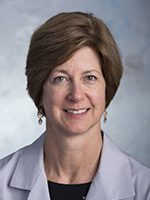
Karen Kaul MD, PhD, is Chair of the Department of Pathology and Laboratory Medicine at NorthShore and is a Clinical Professor of Pathology at the University of Chicago’s Pritzker School of Medicine, and previously served as Director of the Molecular Diagnostics Division at NorthShore University HealthSystem. Dr. Kaul is board-certified in Anatomic Pathology, and also Molecular Genetic Pathology, and has devoted her career to development of the field of molecular pathology, the laboratory basis for individualized medicine. She and her lab have been deeply involved in the development of laboratory tests for cancer, heritable, and microbial diseases. She is a past president of the Association for Molecular Pathology, and served as Editor in Chief of the Journal of Molecular Diagnostics for over a decade. She has been significantly involved in molecular diagnostics efforts, education, regulation, and standardization of the practice of molecular pathology for several professional societies, and is a frequent national speaker and panel member. Dr. Kaul has over 100 peer-reviewed publications in this area. She is the recipient of the 2008 Association for Molecular Pathology Leadership Award. Dr. Kaul has also been deeply involved in pathology training, having served as a program director for nearly 20 years. In 2011, she was appointed a Trustee of the American Board of Pathology where she is involved in professional examination and certification efforts, especially for molecular pathology and genomics. She is currently President of the American Board of Pathology, and also serves on the ACGME Residency Review Committee for Pathology. She was an ELAM (Executive Leadership in Academic Medicine) fellow in 2011-2012. She served as a member of the Tapestry/SPOT Dx working group. In late 2016, Dr. Kaul was invited to provide educational testimony to the bipartisan Senate Health Education Labor and Pension (HELP) committee on the contributions of lab-developed tests and procedures to personalized medicine. Dr Kaul has led clinical laboratory and translational research developments in molecular pathology for many years. Her lab has maintained ongoing efforts in investigation of molecular cancer biomarkers, including circulating tumor cells, DNA and proteins, and has also made significant contributions in the rapid molecular detection and characterization of microbes and antimicrobial resistance which have added novel capabilities to laboratories. Dr. Kaul has led efforts to expand molecular pathology and personalized medicine programs at NorthShore, serving as Interim Co-director of the Personalized Medicine Program. NorthShore has seen a considerable expansion of it tissue and genomic biorepository and is part of the federally-funded presidential Personalized Medicine Initiative. NorthShore does next-generation sequencing of tumors on site to ensure that patients get the optimal treatment, and that effort is being extended into cell-free DNA. NorthShore launched its novel lab and clinical program in Pharmacogenomics in the fall of 2016.
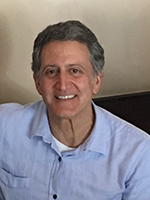
Jeffrey D. Klausner, MD, MPH, is a clinical infectious diseases specialist and research scientist at the University of California, Los Angeles. He has an active research program using molecular diagnostics to detect and identify antibacterial resistance in sexually transmitted infections. Professor Klausner is a frequent advisor to the WHO, CDC and ministries of health. He has published over 450 peer-reviewed publications in HIV and other STDs.
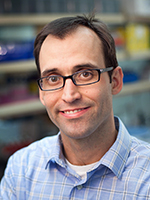
Jeffery M. Klco, MD, PhD, is an Assistant Member in the Department of Pathology at St. Jude Children’s Research Hospital in Memphis, TN. He received his MD and PhD at Washington University School of Medicine in St. Louis, MO and completed residency in Anatomic Pathology and a fellowship in Hematopathology at Barnes-Jewish Hospital in St. Louis. He is board certified in both Anatomic Pathology and Hematopathology. Dr. Klco did post-doctoral research on the genomics and subclonal architecture of acute myeloid leukemia (AML) in the laboratory of Timothy Ley, MD. He is currently a physician scientist at St. Jude with effort on the hematopathology service as well as an active laboratory focused on the genomics of pediatric myelodysplastic syndromes and relapsed AML.
Elissa Levin, MS, CGC, is a nationally recognized leader in developing innovative models for responsibly delivering genomic information to consumers, patients, and providers. She is a board-certified genetic counselor with almost two decades of experience in academia and industry. Her roles have ranged from clinical practice to business, marketing, operations and product development. She is passionate about transforming the genetic testing user experience and building platforms to scale return of results and genetic counseling. As one of the pioneers of direct-to-consumer genomics, she has promoted the consumer perspective, the need to balance technology with human touch, in developing responsible models. In her current role at Helix, she leads the company’s clinical and policy initiatives, setting standards to create a trusted environment where consumers can access a broad spectrum of DNA-informed products and services throughout their lives.
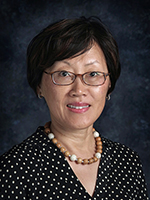
Megan S. Lim, MD, PhD, is the Director of the Joint Division of Hematopathology, Hospital of the University of Pennsylvania and the Children’s Hospital of Philadelphia in the Department of Pathology and Laboratory Medicine. She is the Director of the Lymphoma Biology Program and Co-Leader for the Lymphoma Translational Center for Excellence at the Abramson Cancer Center. Dr. Lim received an MD from the University of Calgary and a PhD in Molecular Oncology from the University of Calgary and National Cancer Institute Lab of Pathology jointly. Dr. Lim obtained her Hematopathology fellowship training at the National Cancer Institute after which she assumed a faculty position at the University of Toronto (1998-2000) and then at the University of Utah (2000-2006). At the University of Michigan (2000-2015) she was the Director of Hematopathology and the Hematopathology Fellowship Program. She has held numerous leadership positions and served on training and education committees for the Association of Molecular Pathology and the United States Academy of Pathology. She is the Vice-Chair of the Non-Hodgkin Lymphoma Disease Committee of the Children’s Oncology Group and participates in integrated translational research in pediatric lymphoma. Her research interests are focused on elucidating mechanisms involved in lymphoma pathogenesis. She research utilizes large-scale mass spectrometry-based proteomic profiling and genomic analysis to characterize novel pathogenetic mechanisms in lymphomas.
Stephen E. Lincoln, is responsible for scientific collaborations and clinical studies at Invitae. He has over 25 years of experience in bioinformatics, specifically as it is applied in the fields of genetics and genomics. His most recent research include studies of the clinical validity and utility of expanded genetic testing in hereditary cancers (PMIDs 26270727 and 26207792). He also works on rigorous methods to assess analytic validity of new assays and algorithms. Previously he held senior positions at Complete Genomics, Affymetrix and Incyte Genomics. Steve's academic background includes 7 years with Eric Lander at the Whitehead Institute and MIT during the initial phases of the human genome project.
Christina Lockwood, PhD, is an Associate Professor in Laboratory Medicine and Director of the Genetics and Solid Tumor Diagnostics Laboratory at the University of Washington Medical Center. She is board-certified through the American Board of Clinical Chemistry as well as the American Board of Medical Genetics and Genomics and a fellow of the AACC Academy. Dr. Lockwood’s research is focused on bridging clinical service and translational research and recent projects have included the clinical deployment of cell-free DNA diagnostics in pregnancy, transplant, and oncology.

Elaine Lyon, PhD, is a tenured professor in the Pathology Department at the University of Utah, is certified by the American Board of Medical Genetics in Clinical Molecular Genetics. As a Medical Director of Molecular Genetics/Genomics at ARUP Laboratories since 2001, she has overseen molecular testing for inherited diseases, designing and validating laboratory assays for clinical use. Her roles comprise test development, quality assurance and review of technical data. She participated nationally in developing guidelines such as the “Assuring Quality in Next Generation Sequencing”, “Clinical Standards for Next Generation Sequencing”, “Interpretation of Sequence Variants”. She serves as a member for the Molecular Pathology Advisory Group for the American Medical Association for cpt coding in molecular pathology and genomic sequencing procedures. As President of The Association for Molecular Pathology, she focused on demonstrating the value of molecular pathology, and led a Task Force for the Framework for the Evidence Needed to Demonstrate (FEND) Clinical Utility, which resulted in the manuscript, “The Spectrum of Clinical Utilities in Molecular Pathology Testing Procedures for Inherited Conditions and Cancer: A Report of the Association for Molecular Pathology”.
Vincent J. Magrini, PhD, Director of Technology Development, leads the day-to-day operations for the Institute for Genomic Medicine (IGM) Research Laboratory. Dr. Magrini, a molecular genomics expert, was previously an Assistant Director at the McDonnell Genome Institute. His work focuses on molecular applications of next-generation sequencing (NGS) platforms including Illumina’s two channel (NovaSeq) and four channel (HiSeq) chemistries, Single Molecule Real-Time (SMRT) sequencing on the Pacific Bioscience’s Sequel, and microfluidic technologies including Oxford Nanopore and 10X Genomics. Dr. Magrini plays a lead role in the integration of novel genomics technology into the data production operations at IGM. His research interests include cancer genomics, expression profiling, and clinical assay applications development.

Cecily P. Marroquin, MA, is the Manager of MOC and Special Projects at the American Board of Medical Genetics and Genomics (ABMGG). She received a MA in Medical Anthropology from the George Washington University and has worked with ABMGG for 5 years on the Maintenance of Certification (MOC), now Continuing Certification program. Her current focus is on increasing the relevancy and decreasing the burden of continuing certification for ABMGG diplomates.
Christopher E. Mason, PhD, the Mason laboratory develops and deploys new biochemical and computational methods in functional genomics to elucidate the genetic basis of human disease and human physiology. We create and deploy novel techniques in next-generation sequencing and algorithms for: tumor evolution, genome evolution, DNA and RNA modifications, and genome/epigenome engineering. We also work closely with NIST/FDA to build international standards for these methods (SEQC2, IMMSA, and Epigenomics QC groups), to ensure clinical-quality genome measurements and editing. We also work with NASA to build integrated molecular portraits of genomes, epigenomes, transcriptomes, and metagenomes for astronauts, which help establish the molecular foundations and genetic defenses for enabling long-term human spaceflight. He has won the NIH’s Transformative R01 Award, the NASA Group Achievement Award, the Pershing Square Sohn Cancer Research Alliance Young Investigator award, the Hirschl-Weill-Caulier Career Scientist Award, the Vallee Scholar Award, the CDC Honor Award for Standardization of Clinical Testing, and the WorldQuant Foundation Scholar Award. He was named as one of the “Brilliant Ten” Scientists by Popular Science, featured as a TEDMED speaker, and called “The Genius of Genetics” by 92Y. He has >150 peer-reviewed papers that have been featured on the covers of Nature, Science, Nature Biotechnology, Nature Microbiology, Neuron, and Genome Biology and Evolution, as well as cited by the U.S. District Court and U.S. Supreme Court. His work has also appeared on the covers of the Wall Street Journal, TIME, LA Times, New York Times, and across many media (ABC, NBC, CBC, CBS, Fox, CNN, PBS, NASA, NatGeo). He has co-founded four biotechnology start-up companies (Genome Liberty, Biotia, Pillar Health, and Shanghai MasonGene) and serves as an advisor to many others. He lives with his daughter and wife in Brooklyn, NY.
Charles Matthews,

Kevin Messacar, MD, is an Assistant Professor of Pediatrics at the University of Colorado School of Medicine. He is an attending pediatrician and infectious disease consultant at Children's Hospital Colorado. Dr. Messacar obtained a BS with honors in biochemistry at the University of Michigan and MD at the University of Michigan Medical School. Dr. Messacar did his pediatric residency and infectious disease fellowship training at the University of Colorado where he received numerous teaching awards. Dr. Messacar's research interests focus on improving the use of diagnostic tests for infectious diseases with a focus on central nervous system infections. He is interested in the process of selecting, implementing, and evaluating newly emerging rapid diagnostic technologies using concepts of diagnostic and antimicrobial stewardship. He is currently conducting an NIH-sponsored trial evaluating the clinical impact of rapid multiplex PCR panels and metagenomic sequencing of cerebrospinal fluid on children with suspected meningitis and encephalitis. In 2014, Dr. Messacar received the Colorado Department of Public Health and Environment Astute Physician Award for recognition of the association between acute flaccid myelitis and enterovirus D68 in Colorado children.
Valentina Nardi, MD, is an assistant professor of pathology at Harvard Medical School and a hematopathologist and molecular genetic pathologist at the Massachusetts General Hospital in Boston. She received her M.D. from the University of Genoa, Italy where she completed an internship followed by a fellowship in hematology/oncology. Dr. Nardi joined George Daley’s laboratory at Boston Children’s Hospital as a postdoctoral fellow studying resistance to tyrosine kinase inhibitors in chronic myeloid leukemia. This research led to her decision to pursue molecular diagnostics as a career. After the postdoctoral fellowship, Dr. Nardi enrolled in the anatomic pathology residency program at the Massachusetts General Hospital where she also completed a fellowship in hematopathology. After a second fellowship in Molecular Genetic Pathology at the Brigham and Women’s Hospital Dr. Nardi joined the faculty at Massachusetts General Hospital, Department of Pathology and Center for Integrated Diagnostics (CID) where she focuses on implementing molecular assays for hematological malignancies with a research interest in rapid detection of known and novel gene fusions in leukemias and sarcomas.
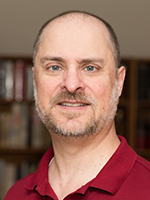
Jared Nedzel, is a Principal Software Engineer in the Portals group at the Broad Institute of MIT and Harvard. Mr. Nedzel is the lead developer for the Genotype Tissue Expression (GTEx) Portal (http://gtexportal.org) – a comprehensive atlas of gene expression and regulation across multiple human tissues. The GTEx Portal supports about 13,000 users and 140,000 page views per month. Mr. Nedzel has led the development of the GTEx Portal from its initial conception through its current deployment on the Google Cloud Platform. He has focused much of his 20-year career in biotechnology on the development of data portals that allow scientists to search, visualize, and share scientific data. Mr. Nedzel holds an M.S. in Computer-Aided Civil Engineering from Stanford University, an M. Eng. in Geotechnical Engineering and a B.S. in Civil Engineering from Cornell University.
Jonathan A. Nowak, MD, PhD,
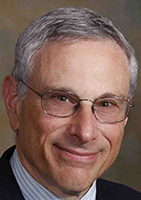
Robert L. Nussbaum, MD, is the Chief Medical Officer of Invitae, a genetic information and diagnostic company. He is board certified in internal medicine, clinical genetics and clinical molecular genetics, and is a Fellow of the American College of Physicians and the American College of Medical Genetics and Genomics. From 2006-2015, he was the Holly Smith Professor of Medicine at UCSF, Chief of the Division of Genomic Medicine and Medical Director of both the Cancer Risk Program and the UCSF Program in Cardiovascular Genetics. He previously served in the Division of Intramural Research of the National Human Genome Research Institute, NIH, and was a Professor of Human Genetics, Pediatrics and Medicine at the University of Pennsylvania and an Associate Investigator of the Howard Hughes Medical Institute. He received an M.D. in 1975 from the Harvard-MIT Joint Program in Health Science and Technology, internal medicine training at Barnes Hospital/Washington University (1975-1978), and genetics training at Baylor College of Medicine (1978-1981). He is the co-author of over 230 peer-reviewed publications in basic and applied human genetics as well as numerous commentaries, editorials, and textbook chapters. He was elected to the National Academy of Medicine (IOM) in 2004 and the American Academy of Arts and Sciences in 2015. Dr. Nussbaum served as a member of the Board of Directors and President of the American Society of Human Genetics, on the Board of Directors of the American Board of Medical Genetics and Genomics, and was a founding fellow on the Board of Directors of the American College of Medical Genetics and Genomics. Dr. Nussbaum was awarded the Klaus Joachim Zülch-Prize for Neurological Research, the Jay Van Andel Award for Outstanding Achievement in Parkinson's Disease Research, and the Calne Lectureship from Parkinson Canada for his work on hereditary Parkinson disease. He is co-author with Drs. Roderick M. McInnes and Huntington F. Willard of three editions of the popular textbook of human genetics, Thompson and Thompson's Genetics in Medicine. With his two co-authors, he received the 2015 Award for Excellence in Human Genetics Education from the American Society of Human Genetics. He has received numerous other awards for research, service and education from the University of Pennsylvania, the National Institutes of Health, the University of California San Francisco, and the Lowe Syndrome Association.
Mitchell O’Connell, PhD, is an Assistant Professor of Biochemistry and Biophysics at University of Rochester and a member of the Center for RNA Biology. After obtaining his PhD in Biochemistry at the University of Sydney, Mitchell was a postdoctoral fellow in the lab of Dr. Jennifer Doudna at the University of California, Berkeley, where he made a number of discoveries related to the ability for CRISPR systems to target RNA. Most notably, Mitchell discovered that the well-known gene editing tool CRISPR-Cas9 is also able to target RNA and can be harnessed as tool to study RNA biology in humans and other organisms. In 2017, he moved to Rochester and set his own lab, which focuses on understanding the biochemical mechanisms of RNA-mediated gene regulation, and on the development of new CRISPR-based tools to study these processes. The lab is particularly interested in how RNA processing is involved in the control and dynamics of fundamental biological processes (such as cell fate decision and maintenance, and neuronal function) and how these processes are dysregulated in disease.

Randall Olsen, MD, PhD, is a medical director of the Molecular Diagnostics Laboratory, Microbiology Laboratory and Special Testing Laboratory at Houston Methodist Hospital. He is also an Associate Professor of Pathology and Laboratory Medicine at Weill Cornell Medical College. Dr. Olsen received his medical and graduate degrees from the University of Nebraska and completed a clinical pathology residency at Baylor College of Medicine. The primary focus of his research laboratory is to investigate the molecular pathogenesis and host-pathogen interactions underlying severe invasive infections.
John D. Pfeifer, MD, PhD, is Vice Chair for Clinical Affairs in the Department of Pathology at Washington University School of Medicine. He is a Professor of Pathology and is board certified in Anatomic Pathology and also Molecular Genetic Pathology. Over the last several years Dr. Pfeifer has helped lead the development of Genomics and Pathology Services at Washington University in St. Louis (GPS@WUSTL). GPS@WUSTL is a CAP accredited/CLIA licensed environment designed around next generation sequencing (NGS) analysis to support patient care, clinical trials, and translational research studies, and Dr. Pfeifer manages the development of the wet bench analytics, bioinformatics, and faculty staffing models required to support NGS for clinical applications. He is also involved in NGS clinical test design (including gene-panel based testing versus exome- or genome-based sequencing) for inherited diseases and cancer, and in the evaluation of different sequencing platforms. Dr. Pfeifer's academic interests are primarily focused on investigation of the role of molecular genetic testing in the analysis of tissue specimens, specifically on the methods and clinical settings in which molecular testing provides independent information that increases diagnostic accuracy, provides more accurate prognostic estimates, or can be used to guide therapy. In line with his role in the development of GPS@WUSTL, several of his recent projects have focused on the role of NGS in patient care.
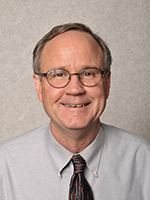
Thomas W. Prior, PhD, is currently the director of the molecular genetics laboratory at the center for human genetics at Case Western University. He received his Ph.D. from the Medical College of Virginia and trained as a postdoctoral fellow at the University of North Carolina. Dr. Prior holds an American Board of Medical Genetics and Genomics certification in Clinical Molecular Genetics. Prior to his appointment at Case Western, he served as the director of Molecular Pathology Laboratory at The Ohio State University. He has a longstanding research interest in the genetics of neuromuscular disorders, specifically in clinical applications and mutation detection. Dr. Prior has been most recently involved in the genetic disorder, spinal muscular atrophy (SMA): in both population carrier and newborn screening projects for SMA and in determining the role of the SMN2 gene and other gene modifiers in effecting the disease phenotype. Lastly, over the years he has been involved in several funded research projects and clinical trials including: Muscular Dystrophy Cooperative Research Center (funded by the NIH), several projects funded by the Muscular Dystrophy Association, Clinical Trials for Pediatric Spinal Muscular Atrophy Project (funded by the NIH), Incidence and Molecular Screening for Hereditary Cancer (funded by the NIH), Project Cure: SMN2 Copy Number Assay (funded by the Families of SMA) and Carrier Screening for Spinal Muscular Atrophy (funded by the Claire Altman Heine Foundation).

Gary W. Procop, MD, MS, is Medical Director and Co-Chair of the Enterprise Laboratory Stewardship Committee. He is the Director of Molecular Microbiology, Virology, Mycology and Parasitology at the Cleveland Clinic. He is past Chair of the Departments of Clinical Pathology and Molecular Pathology, and past Section Head for Clinical and Molecular Microbiology. He completed a Bachelor of Science at Eastern Michigan University, followed by an M.D. and M.S. at Marshall University School of Medicine. Residency training in Anatomic and Clinical Pathology training was completed at Duke University Medical Center and a Clinical Microbiology Fellowship at the Mayo Clinic. He is a diplomat of the American Board of Pathology in Anatomic and Clinical Pathology, and Medical Microbiology. He is a Fellow of the American Academy of Microbiology, the College of American Pathologists, the American Society for Clinical Pathology, the Infectious Diseases Society of America, and the Royal Society of Tropical Medicine and Hygiene. He has given more than 625 scientific presentations, and has 207 published manuscripts, 50 chapters, and three books to his credit. He is the incoming Chair of the Committee on Continuing Certification of the American Board of Medical Specialties. He is a Past President and a Trustee of the American Board of Pathology, and Chair of the Microbiology Test Development Committee for the Board. He is Member of the Board of Directors and the Chair of the Antifungal Subcommittee of the Clinical Laboratory Standards Institute. He is also a Member of the Council on Scientific Affairs and Quality Practices Committee for the College of American Pathologists (CAP). He is also a Member of the Effective Test Utilization Subcommittee of the Commission on Science, Technology & Policy for the American Society for Clinical Pathology. He has served as a Member of the NGS Coalition and Conferences Committee for the American Society for Microbiology. He has also served as the Chair and Advisor of the Microbiology Resource Committee for the CAP. Major recognitions include the ASM BD Award for Research in Clinical Microbiology, the CAP Distinguished Patient Care Award, the John Beach Hazard Teaching Award, and the ASCP Mastership Designation. His primary interests are developing and promoting best practices in laboratory testing, the practical applications of molecular diagnostic methods for the diagnosis and treatment of infections; infectious disease pathology; mycology and parasitology.
Jonathan M. Rothberg, PhD, was awarded the National Medal of Technology by president Obama, our nation’s highest honor for technological achievement, for inventing high-speed, “Next-Gen” DNA sequencing and ushering in the age of “Personal Genomes”. He founded 454 Life Sciences, bringing to market the first low-cost high-speed method to sequence genomes, and the first new way to sequence DNA since Sanger and Gilbert won the Nobel Prize in 1980. Dr. Rothberg went on to sequence the first individual human genome (James Watson’s Genome, Nature) and with Svante Paabo initiated the Neanderthal Genome Project. Under his leadership, 454 undertook the first deep sequencing of cancer, helped understand the mystery behind the disappearance of the honey bee, uncovered a new virus killing transplant patients, and elucidated the extent of human variation—work recognized by Science magazine as the breakthrough of the year for 2007. The New England Journal described Dr. Rothberg’s innovation as "The New Age of Molecular Diagnostics", Science magazine called it one of the top 10 breakthroughs for 2008. Dr. Rothberg went on to invent semiconductor chip-based sequencing, and sequenced Gordon Moore (Moore’s law, Nature), enabling the $1,000 Genome. In addition to founding 454 Life Sciences and Ion Torrent, Dr. Rothberg Founded CuraGen, Clarifi, RainDance, Lam Therapeutics, Hyperfine Research, Quantum-Si, and Butterfly Network. At Butterfly Dr. Rothberg invented the first ultrasound-on-a-chip and in 2017 received clearance from the FDA for the World’s first whole-body scanner, reducing the cost of medical imaging 50-fold and democratizing ultrasound. Dr. Rothberg was born in 1963 in New Haven, Connecticut. He earned a B.S. in chemical engineering from Carnegie Mellon and a Ph.D. in biology from Yale and has an Honorary Doctorate from Mount Sinai. He was first to be named a World Economic Forum's Technology Pioneer four times, is an Ernst and Young Entrepreneur of the Year, received The Wall Street Journal's First Gold Medal for Innovation, Nature Methods First Method of the Year Award, the Irvington Institute's Corporate Leadership Award in Science, the Connecticut Medal of Technology, and the DGKL Biochemical Analysis Prize. Jonathan is a member of the National Academy of Engineering, the Connecticut Academy of Science and Engineering, is a trustee of Carnegie Mellon, and is an Adjunct Professor of Genetics at Yale.
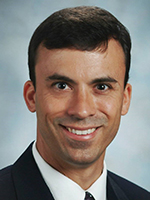
Mark J. Routbort, MD, PhD, is a practicing molecular pathologist and bioinformatician at the University of Texas MD Anderson Cancer Center, where he develops and supports the computational pipelines for next generation sequencing in the clinical Molecular Diagnostics Laboratory. He is board certified in Anatomatic & Clinical Pathology, Hematology, and Clinical Informatics. Receiving a Master's degree in Biochemistry and Molecular Biology from the University of Chicago, and later his MD and PhD degrees at Duke University, he joined the Speakers at MD Anderson in 2004, where he has focused his informatics efforts on initiatives directed at improving pathologist and lab workflow, and on improving the generation, storage, reporting, and retrieval of pathology and laboratory data. He currently serves as Director of Computational and Integrational Pathology for the Division of Pathology and Laboratory Medicine, facilitating the transactional and integrational use of genomic data both internally and with large scale multi-institutional collaborations like NCI-MATCH and AACR Project GENIE.
Somak Roy, MD, is an Assistant Professor of Pathology at the University of Pittsburgh Medical Center (UPMC). He serves as the Director of Molecular Informatics and genetics Services at the Division of Molecular and Genomic Pathology at UPMC. Dr. Roy is a board-certified molecular and anatomic pathologist. His clinical and translational work focuses on the following; 1) Use of modern computational infrastructure and innovative software technology for high-throughput sequence analysis, genomic data visualization, and optimizing molecular laboratory workflow. 2) molecular characterization of urothelial carcinoma to identify clinically relevant, theranostic biomarkers. Since 2014, he has been a member of Informatics Subdivision in the Association of Molecular Pathology (AMP). He served as a representative to the Clinical Practice Committee from 2014-2016 and currently to the Program Committee. Dr. Roy is currently chairing the AMP workgroup that is developing guidelines for validation of clinical NGS bioinformatics pipeline. Dr. Roy completed his medical school training at Seth G.S Medical College, Mumbai followed by pathology residency training at Maulana Azad Medical College, New Delhi. Upon arrival to the United States, he completed anatomic pathology residency from the University of Pittsburgh Medical Center and fellowships in Molecular and Genitourinary Pathology from the same institution.
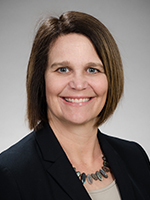
Elizabeth Swisher, MD, graduated cum laude from Yale University and received her medical degree from the University of California at San Diego. She completed her residency in obstetrics and gynecology at the University of Washington and a fellowship in gynecologic oncology at Washington University, St Louis. She joined the faculty at the University of Washington in 1999 where she is currently a Professor in the Department of Obstetrics and Gynecology, Director of the Division of Gynecologic Oncology and an adjunct Professor in the Department of Medicine, Division of Medical Genetics. Both her clinical and laboratory work focus on cancer genetics. She is medical director of the Breast and Ovarian Cancer Prevention Program at the Seattle Cancer Care Alliance. Her research has been funded by the NIH, the Department of Defense, the Ovarian Cancer Research Fund, and others. She is co-Leader of Stand up to Cancer’s first Ovarian Cancer Dream Team. Dr. Swisher’s research has primarily focused on understanding the early events of ovarian carcinogenesis and on the development of novel biomarkers of disease and prognosis, with an emphasis on the role of the BRCA-Fanconi anemia pathway. She has been exploring how a better understanding of this pathway can lead to more effective therapies and prevention of ovarian cancers. She is principal investigator on several PARP inhibitor therapeutic trials and leads the translational research for numerous other clinical trials. Her overall goal is to reduce the burden of ovarian cancer by combining broader identification of inherited risk with effective prevention.
Uri Tabori, MD, PhD, ,is a Staff Oncologist with the Division of Haematology/Oncology and a Senior Scientist within the Research Institute, holds the Garron Family Chair appointment in Childhood Cancer Research, and is a Professor in the Departments of Medical Biophysics, Institute of Medical Science and Paediatrics, University of Toronto. Dr. Tabori is a Principal Investigator within the Arthur and Sonia Labatt Brain Tumor research Centre at The Hospital for Sick Children. He received his MD at the Hebrew University in Jerusalem, he further completed his specialized training in Pediatrics at the Sorasky Medical Centre, in the Department of Haematology/Oncology at the Chaim Sheba Medical Centre, and Paediatric Neuro-Oncology here at SickKids. Dr Tabori’s clinical practice focuses on the treatment of children with cancer, with a particular focus on brain tumors and cancer predisposition. Based on his clinical background and expertise, his research focuses on translational aspects of cancer originating from patients need, through basic discoveries and clinical trials to changes in how society is managing specific cancers. Specifically, Dr Tabori focuses on the development of systems for early detection, intervention and therapeutics in individuals highly predisposed to developing brain tumors. He is also studying mechanisms underlying brain tumor immortality and recurrence in the context of predisposition to cancer. Dr. Tabori has been the recipient of numerous awards, including the Canadian Cancer Society’s Bernard and Francine Dorval Prize in 2016 and the Early Researcher Award from the Ontario Ministry of Development in Innovation in 2014.
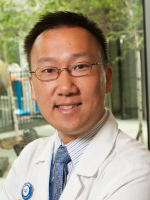
Ying Taur, MD, MPH, received his MD and MPH. from New York Medical College, and completed internal medicine residency at Long Island Jewish Medical Center. He then completed his infectious diseases fellowship training at Memorial Sloan-Kettering Cancer Center in New York City, after which he stayed on there as faculty member. Dr. Taur’s current work has primarily involved the study of the intestinal microbiota and its impact on human disease. He has received support by the National Institutes of Health and the Lucille Castori Center for Microbes, Inflammation, and Cancer for work specifically relating to the role of the intestinal microbiota in infections in immunocompromised individuals, particularly in recipients of allogeneic bone marrow transplant. He is principal investigator in a randomized trial of fecal microbiota transplantation in stem cell transplant recipients, for prevention of transplant-related complications.
Karl V. Voelkerding, MD, FCAP, received his Medical Degree from the University of Cincinnati College of Medicine in 1983. Subsequently, he completed post-doctoral research and clinical training in molecular biology and clinical pathology. In 1990, he joined the faculty of the Department of Pathology and Laboratory Medicine at the University of Wisconsin in Madison, Wisconsin, where he developed and directed a molecular diagnostics laboratory while also practicing transfusion medicine. In 2001, Dr. Voelkerding served as President of the Association for Molecular Pathology, and in 2002 he moved to Salt Lake City, Utah to join the ARUP Laboratories. Currently, he is a Professor of Pathology at the University of Utah and a Medical Director of Genomics and Bioinformatics at the ARUP Laboratories. Dr. Voelkerding has a longstanding involvement in the translation of new technologies into molecular diagnostics, and this interest has focused over the past few years on next generation sequencing. He is currently the Chair of the College of American Pathologists Genomic Medicine Resource Committee.
Matthew Walter, MD, is a Professor of Medicine at Washington University School of Medicine in St. Louis and a member of the Siteman Cancer Center. He trained in Internal Medicine at Johns Hopkins Hospital and completed a fellowship and post-doctoral training in Hematology-Oncology at Washington University. His laboratory at Washington University focuses on the discovery of mutations and clonal evolution that occurs within the genomes of hematopoietic cells from patients with myelodysplastic syndrome (MDS). In collaboration with the McDonnell Genome Institute at Washington University, the group identified mutations in U2AF1, a spliceosome gene commonly mutated in MDS. The lab continues to study the contribution of spliceosome gene mutations for MDS initiation and progression using primary patient samples and pre-clinical models.
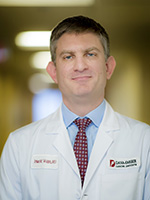
Brian Wolpin, MD, MPH, is a medical oncologist and translational scientist at Dana-Farber Cancer Institute and Harvard Medical School. He obtained his M.D. from Harvard Medical School and completed a residency in internal medicine at Brigham and Women’s Hospital. He completed fellowship training in medical oncology at Dana-Farber Cancer Institute (DFCI) and returned to Brigham and Women’s hospital to serve as chief medical resident. Subsequently, he received a M.P.H. from Harvard School of Public Health. His research program is focused on understanding the factors that promote initiation and progression of pancreatic ductal adenocarcinoma to identify new screening tests and therapeutic approaches. These studies involve evaluation of blood-based circulating markers, germline alterations, and somatic alterations in hundreds to thousands of subjects. Dr. Wolpin is Director of the Gastrointestinal Cancer Center and Director of the Hale Center for Pancreatic Cancer Research at DFCI, and an Associate Professor of Medicine at Harvard Medical School. He also serves as Chair of the NCI Pancreatic Cancer Detection Consortium Steering Committee, co-Principal Investigator for the Pancreatic Cancer Cohort Consortium, Vice-Chair of the NCI Pancreas Task Force, and co-Director of the Pancreas and Biliary Tumor Center at Dana-Farber/Brigham and Women’s Cancer Center. His research has been funded by the National Cancer Institute, Howard Hughes Medical Institute, Lustgarten Foundation, ASCO Conquer Cancer Foundation, Pancreatic Cancer Action Network, and U.S. Department of Defense. Dr. Wolpin’s clinical practice involves the care of patients with gastrointestinal cancers, with a particular focus on pancreatic cancer. He holds multiple leadership positions related to clinical expertise, including membership on the Alliance/CALGB Gastrointestinal Cancer Committee, NCCN Guidelines Committee for Pancreatic Adenocarcinoma, and NCI Pancreas Task Force.
Jennifer Woyach, MD, is an Associate Professor with Tenure in the Division of Hematology at The Ohio State University (OSU), and the section chair of Chronic Lymphocytic Leukemia (CLL). She is a physician scientist focused on translational research in CLL. Her laboratory interests include experimental therapeutics in CLL with a focus on signaling pathways and kinase inhibition. She has extensive experience studying BTK inhibitors, resistance mechanisms associated with irreversible BTK inhibitors, and strategies to overcome resistance. The group at OSU led the collaborative effort to characterize the first group of patients resistant to ibrutinib and discovered novel mutations in the B cell receptor signaling pathway which confer resistance to this agent. Clinically, Dr. Woyach is the principal investigator for multiple early stage clinical trials investigating novel targeted therapies for CLL and other hematologic malignancies. She also is chair of the US intergroup Phase III study A041202 which is investigating chemoimmunotherapy versus targeted therapy as initial therapy for older adults with CLL. She is a cadre member of the Leukemia Committee and Cancer in the Elderly Committee of the Alliance for Clinical Trials in Oncology.
Ahmet Zehir, PhD, is an Assistant Attending in the Department of Pathology and the Director of Clinical Bioinformatics in the Molecular Diagnostics Service (MDS). He received his Ph.D. from Tulane University in 2009 and has since been at Memorial Sloan Kettering Cancer Center. In MDS, he works closely with the leadership in development of new next-generation sequencing (NGS) based assays for the clinical laboratory by providing expertise in pipeline development and data analysis. He has played a key role in MSK-IMPACT assay development, validation and obtaining FDA authorization. He is interested in expanding the information obtained from NGS assays by developing, validating and implementing new algorithms into the clinical workflows. His research focuses on identification of clonal hematopoiesis in cancer patients and defining its relationship with treatment modalities. He is also interested in finding novel bio-markers associated with tumorigenesis and treatment response.
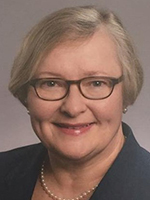
Barbara A. Zehnbauer, PhD, FACMG, has more than 30 years’ experience leading laboratory quality and directing clinical diagnostic testing. She received her education at Southern Illinois University and the University of Chicago. Her professional appointments have included the John Hopkins University School of Medicine, Washington University School of Medicine, and the US Centers for Disease Control and Prevention. She is currently an Adjunct Professor of Pathology at the Emory School of Medicine in Atlanta, Georgia. Barb has professional board certification in Clinical Molecular Genetics from the American Board of Medical Genetics. Dr. Zehnbauer has led the development of professional practice guidelines and accreditation standards for laboratory testing with the College of American Pathologists (CAP) and the Clinical and Laboratory Standards Institute (CLSI). She is the Chair of the CLSI Molecular Methods Expert Panel and received the CLSI Excellence in Standards Development award in 2013. Barb is certified as a CAP Laboratory Inspector and Inspection Team Leader. She is an expert consultant and chairs the Steering Committee for a multi-stakeholder national project to develop quality standards for precision molecular diagnostic testing in oncology therapeutics to advance precision medicine. Dr. Zehnbauer is a past-president of the Association for Molecular Pathology, currently serving as an active member of the AMP Professional Relations Committee and the Publications and Communications Committee. She is the Editor?in?Chief of AMP’s official journal, The Journal of Molecular Diagnostics. Dr. Zehnbauer received the Jeffrey A. Kant Leadership Award in 2015 for her exceptional leadership in AMP advancing the mission and vision of molecular diagnostics.